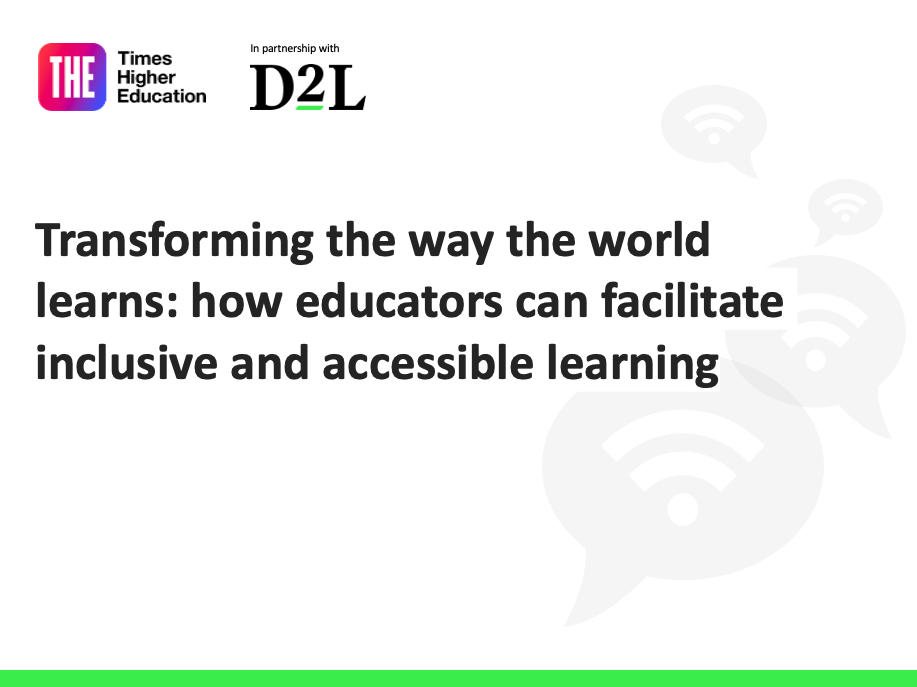
University leaders must become entrepreneurs to address inequality
One of the most significant barriers to higher education is the cost of study. To remove this and address the gap in accessibility between advantaged and disadvantaged students, university leaders must adopt an entrepreneurial mindset.
Although academic organisations are fundamentally distinct from businesses, research shows that university leaders who engage with and have industry experience bring significant benefits to their institutions because of their ability to foster innovation by bridging theory and practice.
Entrepreneurial-based management involves implementing new ventures and making the university a catalyst for social change. With an entrepreneurial mindset, higher education leaders can implement innovative ways of diversifying their income streams to avoid dependency on student fees, allowing universities to support students who face financial challenges. In this article, I will offer some advice on how to do this.
Engage with businesses with corporate responsibility budgets
Corporate social responsibility (CSR) has become a global 21st-century norm. Annually, thousands of companies engage in CSR activities related to areas such as the environment, education and community development.
Universities can partner with companies with CSR budgets to seek support for operational costs and students facing financial challenges. Doing this will attract talented students from low-income families and minority groups who otherwise would never apply.
- Resource collection: What universities can do to become fairer and more sustainable
- Breaking barriers for women: closing the gender health gap in academia
- Simple ways universities can collaborate to bring more refugees into higher education
Integrate paid internships into the curriculum
In Indonesia, the Ministry of Education recognises and encourages paid internships supervised by higher education institutions. Under the Freedom to Study programme, students can intern and claim their learning engagement outside the classroom as a credit. The programme pays Indonesian student interns a living allowance and travel funds.
Internships help students develop soft skills and expand their network. Moreover, working in a professional environment allows students to learn about real-world problems. Internship activities complement the in-class learning process and allow students to reflect on their cognition when they encounter workplace challenges.
Seek out consultancy opportunities
Universities have the potential to impact the wider community and industry with their research. By offering their professional services in the form of policy recommendations, product research and social innovation, they can generate profits that they can allocate to disadvantaged students and diversify their income. They can also promote knowledge transfer that can upskill individuals within the institution.
However, identifying these opportunities is no easy task. Universities have to compete with other organisations to gain contracts. Therefore, it is up to individuals to stay abreast of contemporary social challenges so they can identify opportunities and propose convincing solutions to them.
Keeping your finger on the pulse requires making a habit of catching up with staff and partners and taking steps to understand the wants and needs of students. Furthermore, attending higher education conferences can help you understand issues that matter while building your network with potential sponsors.
Ethical considerations
We need ethical guidelines to ensure entrepreneurial initiatives align with our institutions’ core values. Although profit should be a key performance indicator, the university must always take steps to ensure its partnership with external parties will not harm the community and environment. Conduct robust research before signing any contracts to avoid being associated with organisations that have made headlines for the wrong reasons, and ensure your new partner’s values align with your institution’s. Furthermore, any student involvement in the partnership should also be seen as participatory learning rather than as a way to get cheap labour.
A university’s achievement should not always be measured by rank, facilities or number of graduates. The greater community appreciates institutions that take steps to provide equal access to education, and embracing an entrepreneurial attitude can bridge the gap in accessibility.
Bhakti Eko Nugroho works at the Faculty of Social and Political Sciences at Universitas Indonesia.
If you would like advice and insight from academics and university staff delivered direct to your inbox each week, sign up for the Campus newsletter.



